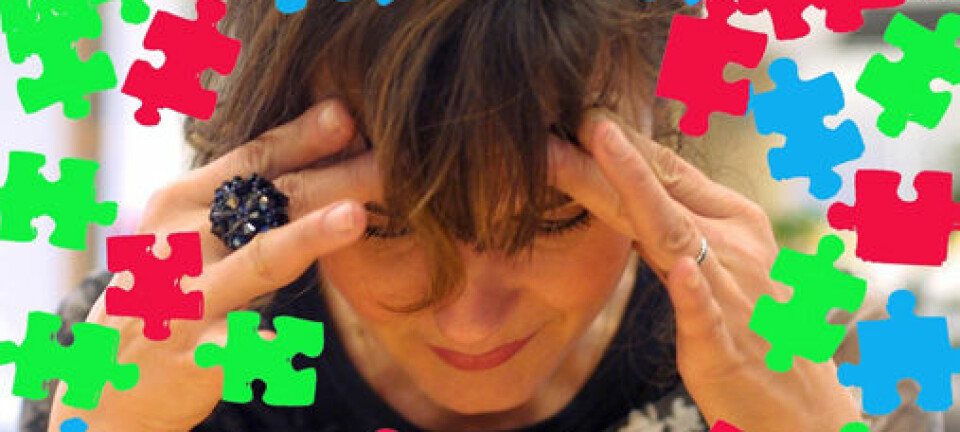
Jealous and fretful women are more prone to developing Alzheimer’s
Jealousy, anxiety and an unstable temperament have been linked in a Swedish study to a higher risk of Alzheimer’s disease.
Denne artikkelen er over ti år gammel og kan inneholde utdatert informasjon.
Middle-aged women who are anxious, jealous or moody and often in despair can face a higher risk of developing Alzheimer’s disease later in life, according to a Swedish study that has been ongoing for nearly forty years.
Most previous research on Alzheimer’s risks and links have focused on educational levels, cardiovascular factors, head injuries, and of course genes and family history.
One of these studies has shown a correlation between higher educational levels and decreases in the risk of dementia.
Neurotic traits
“Personality can affect the individual’s risk of dementia through the impact it has on behaviour, lifestyle or reactions to stress,” says Lena Johannsson, a researcher at the University of Gothenburg.
The study tracked 800 women for 38 years, from around the age of 46. They were given personality tests designed to reveal how neurotic they were and whether they tended to be extroverts or introverts. They were also subjected to memory tests.
A total of 160 of these 800 women developed dementia in the course of the nearly four decades.
Individuals with a neurotic personality tend to easily become upset, depressed and worried easily, and can have traits such as jealousy and moodiness.
People who are neurotic are more likely to express anger, guilt, envy or depression. Introversion in this context is described as being reserved or shy.
Chronic stress doubles risk
The women were also asked whether they had experienced periods of stress lasting a month or longer in connection with their jobs, health or family situations.
Stress was related to emotions such as irritability, tension, nervousness, fear, anxiety or sleep disorders. Studies have shown that chronic stress can develop into depression.
This Swedish study found that women who scored highest for neurotic traits ran twice the risk of developing dementia compared to those who scored lowest. But this link depended on how long the women had been burdened.
Introverted and upset
Just being either introverted or extroverted did not appear to raise the risk of dementia. But the women who were both distressed and introverted had the highest risk of all in this Alzheimer’s study.
A total of 16 of the women who were easily upset and also introverted developed Alzheimer’s. Among those who were easily upset but were extroverts – outgoing – only eight were diagnosed with the disease.
It should also be noted that previous research has shown that patients who have other forms of dementia are sometimes wrongly diagnosed with Alzheimer’s.
--------------------------
Read the Norwegian version of this article at forskning.no
Translated by: Glenn Ostling
































